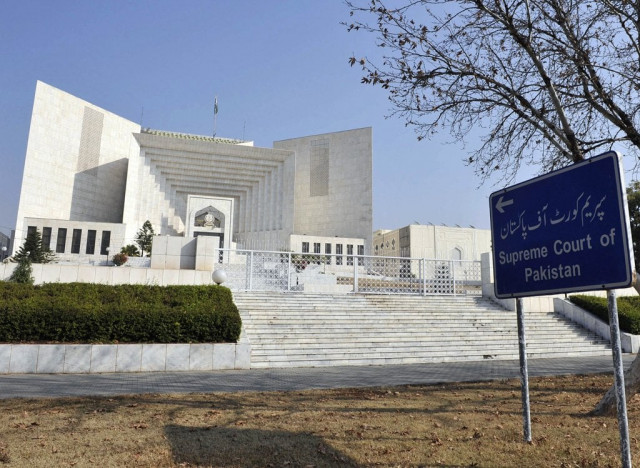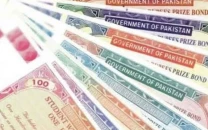Out-of-turn promotions, deputations: SC dismisses review petitions of 179 reverted officers
Apex court also hints at starting separate proceedings to update service laws for civil servants.

In other words, a civil servant who disagrees with a departmental order has to file an appeal within 30 days. If the said authority does not decide on the appeal within 90 days, he can prefer an appeal before the tribunal after the lapse of time. PHOTO: AFP
The Supreme Court (SC) dismissed on Monday a petition filed by as many as 179 officers seeking review of the judgments that declared their out-of-turn promotions and deputations illegal.
The apex court also hinted out at initiating separate suo motu proceedings to decide on the time frame prescribed in the service laws for civil servants to appeal before the tribunal within 90 days.
A three-member bench, headed by Chief Justice Nasirul Mulk, had reserved its judgment on the review petitions after conducting rounds of hearings in Islamabad. The judgment was pronounced by another bench at the SC Karachi Registry.

As many as 51 petitions were filed to seek the review of the SC judgment dated June 12, 2013, that nullified the shoulder promotions of officers in various provincial departments, including the police. Eight civil review petitions were filed against the April 2, 2011, judgment rendered by the Sindh High Court declaring the transfers, deputations, absorptions and regularisation of the ex-cadre officers as illegal.
The apex court took serious exception of various restraining orders passed against its ruling by the SHC judges on the petition of various officers, who were ordered to be repatriated to their parent departments. The judges observed that several officers filed constitutional petitions by concealing facts and managed to obtain restraining orders from the high court against their repatriation.
“We are at a loss to understand as to how the learned Judge [in chambers] could sit in appeal against the findings of this court,” the bench remarked. In light of the Article 189 of the Constitution, ‘any decision of the Supreme Court shall to the extent that it decides a question of law or is based upon or enunciates a principle of law, be binding on all courts in Pakistan’.
The bench issued a show-cause notice to the appellant, Muhammad Ali Baloch, to explain why he should not be proceeded against for committing contempt. The judges noticed that a civil servant cannot approach the service tribunal unless he has appealed within the department.
They pointed out that Section 4(i)(a) of the Sindh Service Tribunals Act, 1973, provides that a civil servant can approach the tribunal but only after 90 days from the date on which the appeal was preferred.
In other words, a civil servant who disagrees with a departmental order has to file an appeal within 30 days. If the said authority does not decide on the appeal within 90 days, he can prefer an appeal before the tribunal after the lapse of time.
These provisions of Section 22 of the Services Act and Section 4 of the Service Tribunals Act, the apex court observed, must be re-examined after adding Article 10-A of the Constitution, as it restricts a civil servant from seeking expeditious remedy from the tribunal constituted under the Constitution.
The judges added that two issues need to be answered: whether or not the fact that Section 4(i)(a) of the Service Tribunals Act restricts a civil servant from filing an appeal to the tribunal after 90 days violates the spirit and command of the Article 10-A, and whether or not it amounts to denying relief to the civil servant.
The bench ordered its office to send this judgment to the chief justices of all high courts for perusal and circulation among the judges, the chief secretaries and establishment division secretary with a direction to streamline the civil service structure in light of principles laid down in the judgment.
The apex court ordered the SHC CJ to constitute special bench, comprising senior judges, to scrutinise the petitions involving service issues and remit them to the federal or provincial service tribunals, as the case may be.
Published in The Express Tribune, January 7th, 2014.



















COMMENTS
Comments are moderated and generally will be posted if they are on-topic and not abusive.
For more information, please see our Comments FAQ